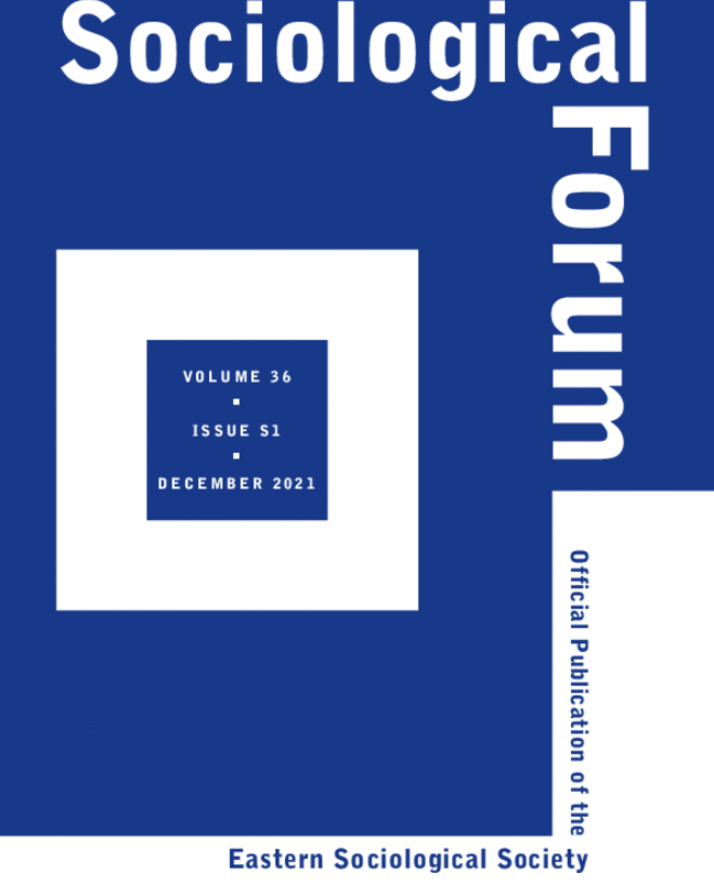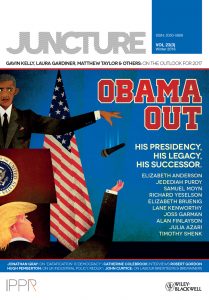Culture and Cognition: New Approaches and New Applications – A Special Issue from Sociological Forum
by Vanina Leschziner and Karen Cerulo · Published · Updated

This is an excerpt from the special issue introduction by Vanina Leschziner and Karen Cerulo. Click here to read their full editorial.
It has been 25 years since Paul DiMaggio’s (1997) agenda setting article, “Culture and Cognition,” graced the pages of the Annual Review of Sociology. In that piece, DiMaggio noted that cultural sociologists were increasingly drawn to ideas about cognition. However, he noted that such ideas were implicit assumptions rather than explicit claims, and often incorrect assumptions at that. DiMaggio urged culture scholars to integrate knowledge about cognition from the cognitive sciences to gain a more accurate understanding of how culture shapes social action and social relations. DiMaggio’s article, almost single-handedly, led to the creation of “Culture and Cognition” as a sub-field of cultural sociology. The piece ushered in a major shift in how sociologists study culture, both in terms of analytic foci and the theories and methods used to investigate them (Cerulo et al. 2021).
As the field of Culture and Cognition has grown, new themes, questions, and puzzles are emerging, moving the field into new intellectual terrain. Moreover, increased interest in cognitive processes now informs research across a wide range of sociological fields, including race and ethnicity (e.g., Bonilla-Silva 2019; Brown 2013; Fox and Guglielmo 2012; Lluch 2019; Ray 2019), social networks (e.g., Hoffmann 2014; Srivastava and Banaji 2011), inequality, poverty, and mobility (e.g., Auyero and Swistun 2008; Rivers et al. 2017; Sampson and Raudenbush 2004), political sociology, social movements, and nationalism (e.g., Bonikowski 2016; Gerteis 2002; Saguy and Ward 2011; Steinman 2012; Young 2002), and gender (e.g., Beisel and Kay 2004; Blair-Loy 2003; Epstein 2007; Read and Oselin 2008).
Our goal in creating this special issue was to survey the state-of-the-art of Culture and Cognition research and present an extensive and wide-ranging picture of current knowledge addressing the workings of brain, mind, body, and their relationship to culture. To assemble this issue, we invited a number of scholars to submit original projects that forward new theoretical ideas, offer exciting tests of current theories in the field, and/or showcase novel methodologies to investigate culture and cognition puzzles. We also asked scholars, where possible, to suggest ways in which the culture and cognition approach could be applied in substantive fields that do not typically utilize a cognitive lens in their research. The pages that follow present 12 original articles that accomplish these goals and offer a rich overview of the ideas currently shaping research in Culture and Cognition. We organized the articles in this issue into two groups: theoretical innovations and empirical tests. However, common analytic foci, theoretical developments, and scholarly debates run through both groups.
THEMATIC THREADS THAT UNIFY THE ISSUE
Before summarizing the articles contained in this issue, we note a few main themes driving the collection of pieces. One analytic area of interest is the relationship between public culture (widely available codes, classifications, narratives, models, rules, scripts, and frames that reside in social spaces) and personal culture (socially shared ideas that individuals internalize such that they become ingrained in the brain and body; see e.g., Lizardo 2017; Patterson 2014). Many of the authors highlight different aspects of this relationship, including specific mechanisms through which public culture becomes internalized; the categories, beliefs, or narratives individuals store or activate in special social and cultural contexts; the relationship between public culture and personal culture as it manifests itself across social positions (i.e., social class, gender, race, and ethnicity); the role of social interaction in the relationship between public culture and personal culture; and how personal culture comes to be shared and expressed in social spaces to sustain (or change) public culture. Central analytic foci among many of the articles include cultural/cognitive schemas—both their functioning and content—and embodied cognition.
Another major analytic area of interest in this issue revolves around the different components of personal culture—often referred to as declarative and nondeclarative culture (Lizardo 2017)—and the relationship between these components. Whereas the former refers to values, attitudes, ideologies, worldviews, and orientations, the latter refers to skills, dispositions, schemas, prototypes, and cognitive associations. The connection between substantively different types of knowledge—what has classically been called conscious and subconscious knowledge—is not a new area of interest in sociology. Indeed, it was central to the discipline from the very beginning; in their different ways, the founders of sociology all wrote about them. But such discussions of knowledge types have gained renewed attention in the past few years, as sociologists turn to dual process models of cognition to explain the connection between cognition and action (cf. Vaisey 2009). Moreover, in the contemporary literature, interest in the relationship between the different components of personal culture covers not only the content of personal culture (the more traditional area of interest) but also the cognitive processes associated with declarative and nondeclarative culture. These cognitive processes are most commonly called automatic and deliberate cognition, or Type 1 and Type 2 cognition, in the sociological literature.
A number of contributions in this collection engage with dual process models of cognition. Some of the themes authors explore include the connection between dual process models and other academic areas or analytical frameworks; some address critical debates about dual process models as they have been interpreted and applied in sociology—what has come to be referred to as the sociological dual process model (Vila-Henninger 2015); others examine the contrasts between those who characterize this model as binary in nature versus those who criticize the model for its failure to acknowledge the nature of embodied experience or the inherent connection between brain and body.
It bears noting, in particular, that a few articles in this collection address the issue of change, a topic all too often ignored or relegated to the margins of theoretical and empirical research in culture and cognition. Some authors examine change in personal culture and public culture, as well as social change; some investigate the kinds of mechanisms that may lead to change. Analytic foci here include the mechanisms whereby change can happen in personal culture; the possible ways in which the relationship between Type 1 and Type 2 cognition can lead to social change; and aspects of personal culture that, in the aggregate and in the long run, can lead to cultural change.
Click here to read the full editorial.
The articles included in the issue can be divided into two sections: Theoretical Innovations, and Empirical Tests. Below is the full list of papers.
Theoretical Innovations
Culture, Cognition, and Internalization
Omar Lizardo
Have Schemas Been Good To Think With?
Vanina Leschziner and Gordon Brett
On Rupture: Establishing the Cognitive Bases of Social Change
Lynette Shaw
Cognitive Sociology after Relational Biology
Gabe Ignatow
Luis Antonio Vila-Henninger
Welcome to the Real World: Escaping the Sociology of Culture and Cognition
Stephen Vaisey
Empirical Tests
Revision, Reclassification, and Refrigerators
Terence E. McDonnell, Dustin S. Stoltz and Marshall A. Taylor
Future Imaginings: Public and Personal Culture, Social Location, and the Shaping of Dreams
Karen A. Cerulo and Janet M. Ruane
Michal Pagis and Erika Summers-Effler
The Heterarchy of Occupational Status: Evidence for Diverse Logics of Prestige in the United States
Lauren Valentino
All Roads Lead to Polenta: Cultural Attractors at the Junction of Public and Personal Culture
Andrei Boutyline, Devin Cornell and Alina Arseniev-Koehler
Schemas, Interactions, and Objects in Meaning-Making
Craig M. Rawlings and Clayton Childress
All papers in this new Sociological Forum special issue are free to read until January 31, 2022. Click here to access the full issue.






1728-4457/asset/PopulationCouncilLogo.jpg?v=1&s=03074651676b98d6b9d0ef1234bd48fe7ff937c3)
1467-7660/asset/DECH_right.gif?v=1&s=a8dee74c7ae152de95ab4f33ecaa1a00526b2bd2)